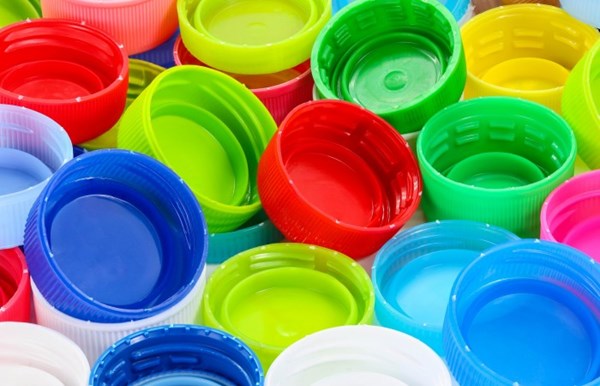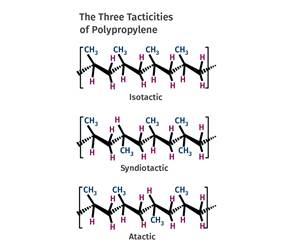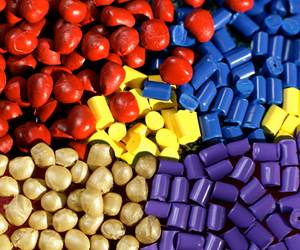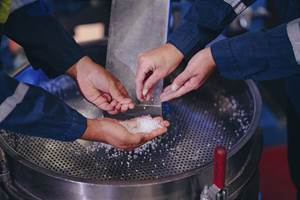Propylene Prices: What’s in Store for PP Market
PCW’s editorial experts describe current PP market as “paused”.
PCW’s editorial experts describe current PP market as “paused”.
Spot polymer grade propylene (PGP) prices have been jumping up daily since the start of the year—about 35% initially and climbing to over 50%—while January propylene contracts have yet to be settled.
This propylene price escalation is driven by tight supply—primarily a combination of throttled back production at end of 2016 and ongoing unplanned outages. To what degree and for how long they will affect PP prices is not entirely clear.
“The PP market is paused at the moment,” says Kathy Hall, executive editor of Houston-based PetroChemWire (PCW). She sees PP suppliers as “restraining themselves”, as they wait to see how the propylene situation shakes out.
The timing of propylene contract settlements is something that has been changing over the last year, according to Hall. Whereas, settlements traditionally came in early in a month’s cycle, they have been pushed back later and later, now approaching the end of the month—and nearly mirroring the late timing of monthly ethylene contract settlements we’ve come to know.
But, one thing is for sure at this juncture: December propylene contracts stood at 31.5ȼ/lb and current spot propylene prices are approaching the high 40ȼ/lb range. As a result, the January monomer contract settlement is bound to come in higher—and likely, significantly—ditto for PP prices. And, one question is:
Are we likely to see PP suppliers add margin expansion (or, monomer +) to any monomer increase as was the case over the last couple of years?
PCW’s senior editor David Barry weighs in:
“I think the big question at the moment of dramatic propylene cost increases is whether PP suppliers will use margin compression due to the need to keep the resin prices competitive with the global market. However, there is an expectation that the new Enterprise propylene plant will start up in second quarter and bring greater balance and lower prices to the monomer market in the second half of 2017. The scenario of falling propylene prices could provide North American PP suppliers with an opportunity to push up their margins later this year.”
PP suppliers had worked toward balancing the market by throttling back production, while reducing prices to make it difficult for PP imports to compete by end of 2016. But, the scenario changed this month as domestic demand is up.
PCW’s Hall reported that while PP suppliers had expected to ramp up production to meet demand, “The run-up in propylene costs has caught PP buyers off guard and caused some to lower their order volumes.”
Moreover, PP buyers appear to believe that the monomer increases will be short-lived. PCW’s Hall reported that spot homopolymer PP on an FOB Houston basis, in step with the spot monomer run-up, was in the high 40ȼ/lb to low 50ȼ/lb range by the third week of January, up from 40-41ȼ/lb at month’s start.
“However, PP suppliers have backed off the spot market amid uncertainty over how to price the product. There has also been more discussion of PP resin imports, as prices from offshore are becoming competitive in light of a potential double-digit PGP and PP contract increases,” Hall reported. Here is how PCW senior editor David Barry sees it, noting that while he’s hearing more talk of PP imports becoming competitive, domestic buyers appear to be cautious:
“It is not clear how long these high propylene numbers will stick around, and nobody wants to have a bunch of cargo on the water when the propylene and PP markets start to correct. Unlike first quarter 2016, when WTI crude was priced in the $30s/bbl and even high $20s for a short time, you have a crude oil market on much firmer ground. That makes it less likely that we see PP resin from overseas undercutting the U.S. market for any significant length of time. However, I’ve heard about PP expansions, in China especially, that could bring a more oversupplied dynamic to the global market. It remains to be seen whether demand growth in the emerging economies will consume all that new capacity. But a glut of PP in Asia could present a challenge to domestic PP suppliers if material from overseas is being sold aggressively into North American markets.”
Image courtesy Distrupol.
Related Content
Fundamentals of Polyethylene – Part 5: Metallocenes
How the development of new catalysts—notably metallocenes—paved the way for the development of material grades never before possible.
Read MoreThe Fundamentals of Polyethylene – Part 1: The Basics
You would think we’d know all there is to know about a material that was commercialized 80 years ago. Not so for polyethylene. Let’s start by brushing up on the basics.
Read MoreFundamentals of Polyethylene – Part 6: PE Performance
Don’t assume you know everything there is to know about PE because it’s been around so long. Here is yet another example of how the performance of PE is influenced by molecular weight and density.
Read MorePrices of PE, PP, PS, PVC Drop
Generally, a bottoming-out appears to be the projected pricing trajectory.
Read MoreRead Next
Making the Circular Economy a Reality
Driven by brand owner demands and new worldwide legislation, the entire supply chain is working toward the shift to circularity, with some evidence the circular economy has already begun.
Read MoreSee Recyclers Close the Loop on Trade Show Production Scrap at NPE2024
A collaboration between show organizer PLASTICS, recycler CPR and size reduction experts WEIMA and Conair recovered and recycled all production scrap at NPE2024.
Read MoreFor PLASTICS' CEO Seaholm, NPE to Shine Light on Sustainability Successes
With advocacy, communication and sustainability as three main pillars, Seaholm leads a trade association to NPE that ‘is more active today than we have ever been.’
Read More


























